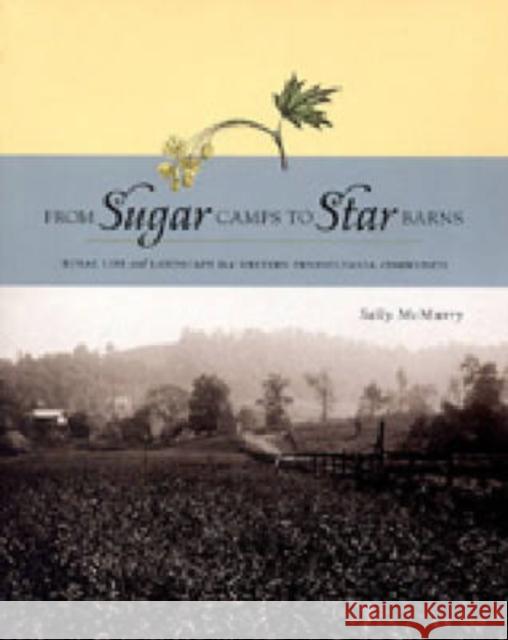From Sugar Camps to Star Barns: Rural Life and Landscape in a Western Pennsylvania Community » książka
From Sugar Camps to Star Barns: Rural Life and Landscape in a Western Pennsylvania Community
ISBN-13: 9780271021089 / Angielski / Miękka / 2001 / 182 str.
From Sugar Camps to Star Barns: Rural Life and Landscape in a Western Pennsylvania Community
ISBN-13: 9780271021089 / Angielski / Miękka / 2001 / 182 str.
(netto: 153,88 VAT: 5%)
Najniższa cena z 30 dni: 159,60
ok. 30 dni roboczych.
Darmowa dostawa!
Rural Pennsylvania's landscapes are evocative, richly textured testimonies to the lives and skills of generations of builders--architects as well as local builders and craft workers. Farmhouses and barns, silos and fences, even field patterns attest to how residents over the years have had a sense of place that was not only functional but also comfortable and aesthetically appropriate for the time. From Sugar Camps to Star Barns tells the story of one such place, a landscape that evolved in southwestern Pennsylvania's Somerset County.Sally McMurry traces the rural life and landscape of Somerset County as it evolved from the earliest settlement days. Eighteenth-century residents were a forest people, living on sparsely built farmsteads and making free use of the heavily forested landscape. The makeshift sugar camp typified their hardscrabble lives. In the nineteenth century, the people of this area turned to farming. Prompted by the ''market revolution'' that had come to Somerset County, they pursued a highly varied agriculture, combining a subsistence base with robust production of commodities shipped to distant cities. Their landscape reflected this combination of the local and the cosmopolitan--a combination that reached its full expression in the distinctive two-story banked farmhouse with double-decker porch, flanked by a substantial Pennsylvania barn.The twentieth century brought a more industrialized agriculture to Somerset County. But the shift to profit-and-loss farming also meant the accentuation of landscape elements specific to market products. The magnificent ''star barns'' of this era overshadowed the houses, and ancillary structures, such as ''peepy houses'' and silos, spoke to the pressures of efficiency and mass production. The subsequent rise of coal mining helped to stimulate this trend, both by supplying local markets and by creating an incentive for farmers to visually distinguish their landscapes from those of the coal-patch towns.Illustrated with over 100 photographs, maps, drawings, and diagrams, From Sugar Camps to Star Barns demonstrates how much we can learn about the economy and culture of a particular place simply by being attentive to the built landscape.











